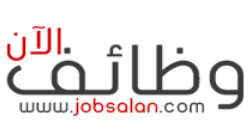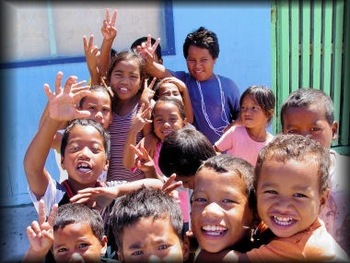
Zoominfo
اضافة الى المراجعة تابعملخص
-
تاريخ التأسيس 14 نوفمبر، 1957
-
المجالات الوظيفية وظائف القطاع العسكري
-
الوظائف المنشورة 0
-
شاهد 74
وصف الشركة
National Training Council – Marshall Islands
RMI Education and Skills Strengthening Project
The Government of the Republic of Marshall Islands has actually received financing from the World Bank for the Education and Skills Strengthening Project (ESSP) cost. It plans to apply part of the profits for seeking advice from services.
The consulting services (“the Services”) will assist the Project Manager and the RMI National Training Council in implementing the World Bank-funded job successfully.
The project will focus on supporting the Project Implementation Unit (PIU) in producing a structure for Recognition of Prior Learning (RPL) for TVET, focused on helping the College of the Marshall Islands and the RMI National Training Council evaluate and boost the skills of employees through recognized college certification.
The detailed Terms of Reference (TOR) for the task are suggested in the attached Terms of Reference (ToR).
The National Training Council now invites qualified individuals (“Consultants”) to show their interest in providing the Services. Interested Consultants need to offer details demonstrating that they have actually the required credentials and pertinent experience to perform the Services (connect a Cover Letter of no more than 4 (4) pages addressing the necessary experience and qualification requirements curriculum vitae with a description of experience in comparable projects, similar conditions, etc). Firms’ staff might express interest through the employing company for the project. In such a circumstance, only the experience and credentials of people shall be considered in the selection procedure. The requirements for electing the Consultant are: A.
Mandatory Qualifications and Experience Master’s degree in education, training
, management, or a related field. Minimum of 5-10 years of experience working in TVET System. Curriculum Design and Systems.
Possess 2-5 years’ experience developing and
implementing RPL. frameworks, policies, and procedures. A sample of previous work will be required as proof of previous experience. Exceptional interaction, training, and assistance
skills. Experience with dealing with diverse stakeholders, including federal government. firms, TVET institutions, companies, and students in the Pacific. B. Desired Qualifications and Experience Capability to deal sensitively in a multicultural
environment and construct reliable group relationships with clients and appropriate stakeholders. The attention of interested Consultants (consisting of firms )is drawn to paragraphs 3.14, 3.16 and 3.17 of the World Bank’s”
Procurement Regulations for IPF Borrowers “July 2016 revised November 2020” Procurement Regulations “, https://www.zoominfo.com/ setting forth the World Bank’s policy on conflict of interest. More details can be acquired at the address listed below throughout workplace hours, 0900 to 1700 local time. Expressions of interest must be
provided in a written type to the address below (personally or by e-mail )by 5:00 pm, 23rd December 2024.
The subject line must state:”National Training Council Strategic Plan Consultant -full name of the prospect”. Julius Lucky Director National Training Council[email protected]:Phone: 692 625-4521 Empowering Community Champions for Sustainable Development in RMI Gender Equality, Climate Resilience and Water Safety Training Majuro,
Republic of the Marshall Islands: The fourth
Women and Youth Training for
Gender Equality, Climate Change, Disaster Risk Reduction and Water Safety Management has recently occurred at the University of the South Pacific’s school in Majuro, the Republic of the Marshall Islands(RMI ). This crucial training was organized by the United Nations Development Programme( UNDP )Pacific Office through the Addressing Climate Vulnerability in the Water Sector(ACWA) project. The week-long capacity-building training aimed to empower females and youth with the understanding and practices needed for climate-resilient water security management in the
Republic of the Marshall Islands(RMI ). This training enhances a commitment to boosting RMI’s water security and community strength versus environment change impacts, specifically ladies
and youth, making sure that no one is left behind. The training invited individuals from all 24 atolls and included resource speakers from government firms, non-governmental companies, and worldwide advancement partners from the rmi national training council Environmental Protection Authority, Climate Change Directorate, Office of the Chief Secretary, Ministry of Culture and Internal Affairs, National Disaster Management Office, Women United Together Marshall Islands, RMI Human Trafficking Task Force, Waan Aelõñ in Majel, Jo-Jikum, and the International Organization for Migration. In her opening remarks, Secretary for the Ministry of Culture and Internal Affairs, Brenda Alik, highlighted the significance of cumulative action in developing a climate-resilient country.”It is our duty to come together and work together. As we deal with the difficulties postured by climate change, comprehending its impact on our water resources is important for enhancing the wellness of communities across the Marshall Islands,”she stated.
RMI Environmental Protection Authority General Manager Moriana Philip highlighted in her speech the essential function of women and youth in dealing with climate-related obstacles.”This workshop unites us from numerous communities to deal with the pressing issues we deal with today, including climate-related obstacles, especially on our water resources.”We wish to highlight the essential role of females and youth in this job as your participation is instrumental to its success and beyond, “she stated.
The very first day of the workshop covered important problems associated with gender equality, human rights, and public health within the Marshall Islands. It consisted of discussions on gender equality and mainstreaming, concentrating on the impacts of climate modification on water security and the out of proportion impacts on vulnerable groups. The importance of integrating gender equality and social inclusion into all project aspects was likewise discussed. Human rights and human trafficking were taken on, stressing the need for extensive defense of vulnerable populations
during emergencies. Furthermore, the workshop addressed gender-based violence, highlighting the numerous forms that can arise in catastrophe situations, such as domestic violence and sexual coercion. The agenda concluded with a concentrate on sanitation and hygiene and their crucial role in health, incomes, school attendance, self-respect, and structure resistant communities. ACWA Project Manager Koji Kumamaru revealed his gratitude to all participants
, highlighting the significance of their contributions to their communities.”Women and youth are key to the success of the ACWA job. More importantly, you are the champs and future leaders who will return to your communities to empower others,”he said. Throughout the workshop, individuals visited Rongrong Island and took a look at the 15,000-gallon Flatpack Modular water tank set up at the Rongrong High School Boys Dormitory as part of the ACWA project. The setup is a crucial element of the project, complemented by assistance from Australia
‘s Department of Foreign Affairs and Trade. The visit functioned as an important firsthand experience of the positive effect of the ACWA job on the neighborhood and its
water resources. Marie Naisher from Jabat Island revealed her gratitude for the chance to join the workshop and made clear her desire to be part of the project when it reaches Jabat.
“This was my very first time participating in such training, and I found out so much from the guest speakers, group activities, and the website visit. I now comprehend the importance of tidy water and how to sanitize it. I’m fired up about the ACWA task coming to Jabat and all set to help when it gets here,”she stated. Don Kobney, an ACWA site organizer from Santo, Kwajalein, likewise shared his excitement.”The workshop and site visit improved my confidence and understanding of the water tank installation.
Seeing the 15,000-gallon flatpack modular water tank firsthand offered me a clear understanding of the system, and I’m anticipating sharing this knowledge with my community, “he stated. By the workshop’s end, individuals were much better equipped to understand climate modification and its regional impacts, drive adaptation and mitigation efforts, particularly in water safety, and make use of new resources to affect their communities positively. ACWA is enabled thanks to the support of the Green Climate
Fund, with the task co-financed by the Government of the Republic of the Marshall Islands
. The Marshall Islands: Skills Training and Vocational Education Project Assesses the performance of the task and highlights lessons. Offers inputs to two wider examinations- the regional evaluation of ADB support for the Pacific and the unique assessment study on Millennium Development Goals. The low instructional attainment and scarcity of Marshallese skilled workers were mainly due to the poor quality of fundamental education, absence of access to education in the outer islands, and weaknesses in abilities training and the professional and technical education system.
These supported an economy marked by high joblessness because of constrained economic sector development and federal government downsizing. Unemployment was particularly high among the youth and ladies in the external islands. Ideal local skilled workers for existing task vacancies
were unavailable, for this reason the importation of appropriately competent foreign workers. Thus, there was an inequality in between offered jobs and abilities of the Marshallese labour force. These conditions offered the effort for the Government
of the Marshall Islands to focus on technical and employment education training reforms. In 2000, ADB authorized a loan for $9.1 million to improve skills training to supply trained employees needed for continual economic and social advancement. This was to be achieved through an integrated nationwide abilities training system. The project consisted of four parts: advancement of a profession awareness program, skills training enhancement, improved skills training chances for women and youth, and institutional conditioning. The expected outcome was increased income-generating chances and employment for students, specifically women and youth in the outer islands. In general, the job was ranked unsuccessful. Minimal progress was attained in making the task responsive to the requirements of its beneficiaries and private-sector companies. The long-standing weakness of poor numeracy and literacy competencies
amongst public elementary and secondary school graduates and dropouts getting in college or going to voc-tech education could be partially attributed to the poor quality of fundamental education. The task was supply-driven and might not establish a strong linkage with private sector requirements or align its activities with the needs of the labour market. The status of the technical and trade education training system has actually stayed basically the same after project conclusion. The study put forward that ADB might encourage the Government of the Marshall Islands, through assessment and policy discussion, to follow through on the federal government’s
dedication to developing a committed labour details system to link technical and employment education training program offerings with industry need. Although the project established a labour market info system, in the absence of in-house staff capability at the National Training Council, it was not fully functional.



